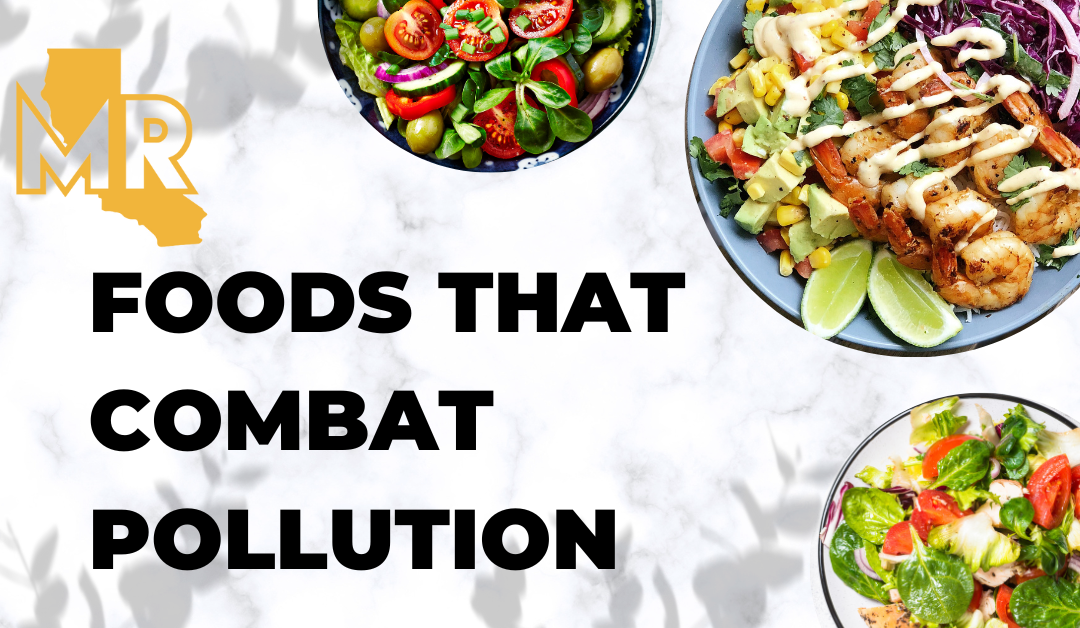Pollution can have a detrimental impact on our health and well-being, causing breathing problems like asthma, skin issues such as psoriasis, a weakened immune system, and high blood pressure. Pollution exposure has even been linked to cancer and heart disease.
While we can’t always escape exposure to pollutants, we may be able to help reduce its effects. Foods rich in antioxidants may help prevent and even reverse cell damage caused by pollutants. Try including these in your diet:
- Green tea: this wonderful tea contains a chemical called polyphenol, which has been shown to counteract the effects of environmental pollutants like pesticides and smoke. Aim for 2-3 cups per day.
- Fruits and vegetables: kiwis, citrus, spinach, berries, broccoli, kale, and tomatoes are all packed with Vitamin C, which is great for boosting immunity, reducing the rate of cardiovascular disease, and improving asthma. Aim for 1 ½ to 2 cups of fruit and 2 to 3 cups of vegetables per day.
- Fish oil: fatty fish — like mackerel and salmon — contain Omega-3 fatty acids which are not only great for your brain, lung, and heart health, but also combat the effects of air pollution. Aim for 2-3 servings of fatty fish a week.
- High-fiber foods: cruciferous vegetables like broccoli, cauliflower, kale, brussels sprouts, bok choy, and cabbage are high in the compound sulforaphane which supports the liver in detoxing harmful pollutants from your body. The fiber in these vegetables helps to limit the body’s absorption of toxins and helps to expel them, too. Aim for 2 cups a day.
Wherever possible, aim to buy organic produce to limit exposure to synthetic chemicals like herbicides or fertilizer.
Wash your produce with a fruit and vegetable wash before eating to rinse off lingering pesticides, as well as reducing bacteria picked up throughout the produce processing cycle. You can make your own rinse with 1 part white vinegar and 4 parts water.



